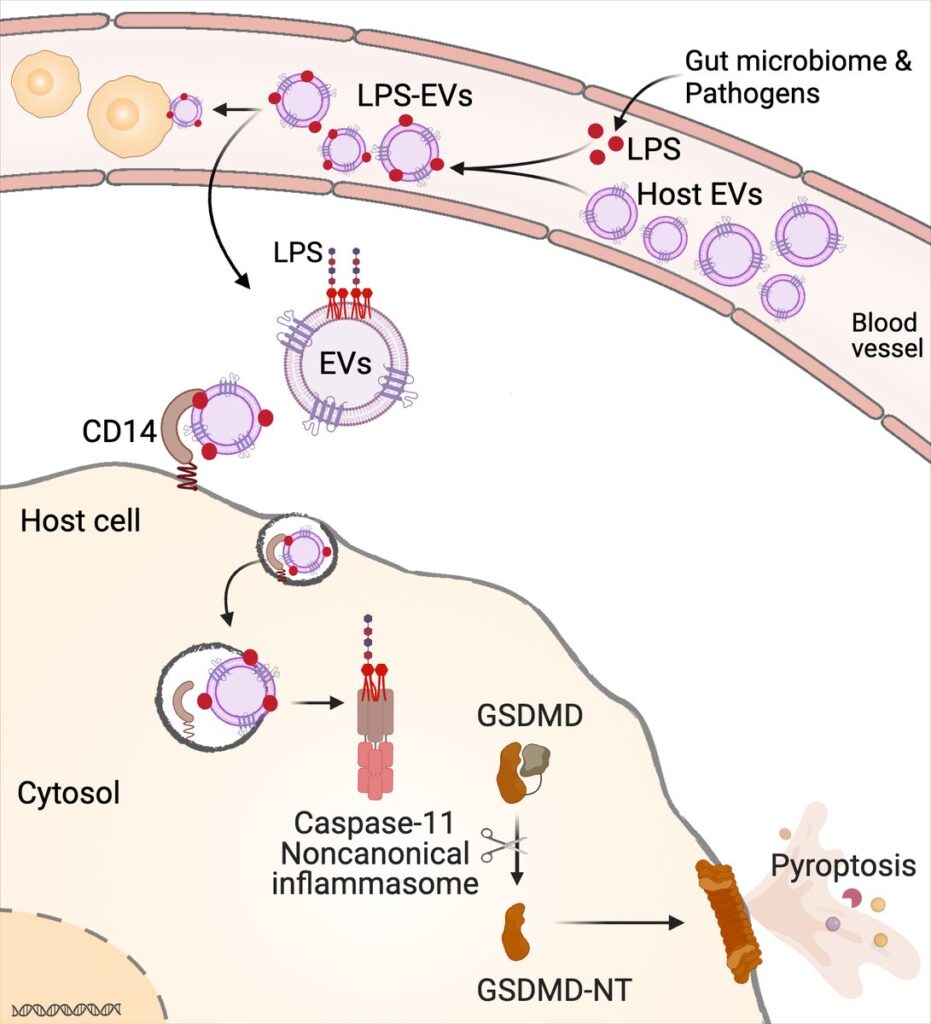Extending the Role of Extracellular Vesicles as Carriers of Non-Human Cell Messages

EV-mediated cytosolic delivery of LPS is CD14 dependent.
A study conducted by Vijay A. Rathinam and his team from the University of Connecticut Health School of Medicine reveals a groundbreaking finding: extracellular vesicles (EVs) can serve as messengers not only for human cells but also for non-human cells. Published in Nature Cell Biology, the research sheds light on how these tiny bubbles produced by human cells can transport bacterial products, potentially influencing various physiological processes.
EVs, akin to a cellular postal service, ferry molecular messages between cells via the bloodstream. In this study, the researchers discovered that EVs possess an unexpected capability. They can capture fragments of bacteria, incorporating them into their lipid-based walls. Upon being internalized by another cell, these EVs deliver the bacterial products along with their usual cargo, triggering intracellular responses.
They found that EVs patrol the circulation for systemic microbial products and alert an immune surveillance network inside the cell. This mechanism addresses a longstanding mystery regarding how microbial products enter human cells to elicit immune responses.
To validate their findings, the researchers conducted experiments involving the injection of green-labeled bacterial lipopolysaccharide (LPS) into mice. Subsequent analysis revealed the presence of LPS-bound EVs in the mice’s bloodstreams, demonstrating the EVs’ role in transporting bacterial components. Transfer of these LPS-laden EVs to recipient mice induced inflammation, confirming their ability to activate cellular responses.
While the study primarily focused on LPS, the researchers speculate that similar mechanisms may apply to other microbial products. They believe this has a role in normal physiology as well as in infections. The findings unveil EVs as a crucial link between systemic microbial ligands and intracellular surveillance, providing insights into host physiology and immunity during homeostasis and infections.
In summary, this study underscores the pivotal role of EVs in facilitating intercellular communication, expanding our understanding of how microbial products influence cellular behavior and immune responses.
Image Credits: Kumari, P., Vasudevan, S.O., Russo, A.J. et al. Nat Cell Biol 25, 1860–1872 (2023).